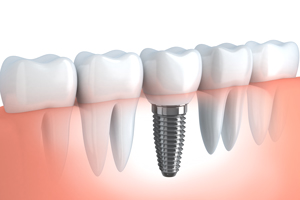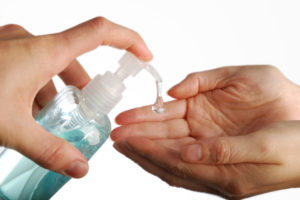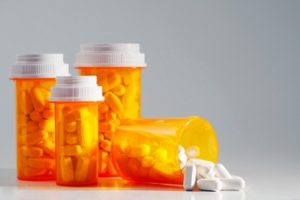
Services



Bleaching
Prior restorations (fillings) will not change shade by bleaching. Teeth and gums may become more sensitive while bleaching. Pay close attention to instructions as to not overuse the amount of product in the tray or sensitivity may occur. Some patients have to use Sensodyne toothpaste or only bleach every other day to avoid sensitivity. Periodic touch up will be necessary to maintain the desired shade.
Blood Pressure
Magna Dental takes blood pressure on every patient and reserves the right to decline and reschedule treatment if your blood pressure is high and above the average to safely precede with your scheduled care.
Cleaning (Routine Prophy)
A routine prophy is a standard dental cleaning for patients with little to no bone loss. Plaque, calculus (tartar) and stains are removed during this cleaning. After treatment, your gums may be sore or your teeth may be more sensitive and is temporary. Bonded orthodontic retainers may come off during treatment.
Crowns & Bridges
Crowns are done to provide more durable full coverage restoration for teeth. A tooth may need a crown if there is a large filling present, fracture lines, prior root canal treated tooth, or compromised esthetics. Bridges are used to replace a missing tooth in a non-removable manner. This treatment will require two or more appointments. A temporary crown or bridge will be placed after preparation of the teeth. The temporary restoration must stay in place to prevent shifting of the tooth or adjacent teeth, causing the permanent crown to not fit. Call the office if the temporary comes off. It is not always possible to match the shade of the crown to natural tooth structure. Crowns may loosen and need to be recemented. Crowns and bridges are not permanent and may need to be replaced in as little as 3 years. Brushing, flossing, and regular cleanings are necessary to help possibly improve the longevity of the restorations. Risks and complication include, but are not limited to increased sensitivity (temporary or permanent) or nerve death requiring root canal therapy. Additional treatment cost from complications may arise at the responsibility of the patient.
Dentures (Complete, Partial, Immediate and Relines)
Teeth replaced with a removable denture are retained by suction against the palate. Full lower dentures are retained by training the tongue and cheek muscles to hold them in place or a partial denture is retained by remaining teeth and gum tissue. Immediate dentures are placed immediately after extractions but generally become loose after tissues heal requiring reline or another set of dentures made. Temporary (soft) and permanent (hard) relines are not considered to be an adjustment. All relines are the expense and responsibility of the patient. Dentures may require denture adhesive to aid in their retention. Stabilization of dentures can be improved with attachment to implants. Ask about that option and if it is right for you. Before a denture is completed, there will be numerous appointments. First a preliminary set-up denture in wax that will be placed for esthetics, arrangement, shape, color and position of teeth. Any changes will need to be made at this stage. Once this preliminary stage is approved, the denture will be completed and any changes from this point forward will be the patients financial responsibility. Risk and complications include, but are not limited to: adapting to a new denture is a slow process and can be difficult. It is not possible to exactly duplicate old dentures. Habits such as clenching, grinding and consumption of foods requiring aggressive chewing increases the possibility of damage to denture, soreness and time needed to adapt to new denture. The inability to chew and bite effectively, looseness, collection of food beneath the appliance, altered speech patterns, changes in facial appearance, ulceration, infection, discomfort and potential development of cancerous lesions of supporting tissues is possible. In time the teeth will wear out, crack, discolor, and may loosen due to changes in the underlying supporting tissues or simply wear out. Patients will require an annual examination of the mouth for cancer, etc. The denture requires daily personal maintenance of removing and soaking it in denture cleaner every night at least five times per week. This is important the oral tissue to rest and to help prevent fungal infections in the mouth from prolonged denture wear.
Extractions
Please note that in some cases there are alternatives to tooth removal, which include root canal therapy, extensive restoration, periodontal treatment or crowns. Removing teeth does not always remove existing infection and further treatment may be necessary. Extraction of teeth is irreversible and whether routine or difficult, it is a surgical procedure. Most extractions are routine and serious complications are not expected. Those that do occur are most often minor and can be easily treated. Risk and complications for treatment include but are not limited to: swelling, bruising and or discomfort in the surgery area; injury to oral tissues, including lip, cheek, or tongue. Stretching of the corners of the mouth resulting in cracking and bruising; possible infection requiring further treatment; bleeding during and after the procedure (persistent oozing can be expected for several hours, which is normal); numbness or altered sensation in the teeth, lip, tongue (including possible loss of taste sensation) and chin due to the closeness of tooth roots (especially wisdom teeth) to the nerves which can be bruised or injured. Sensation most often returns to normal, but in rare cases, the loss may be permanent. Possible damage to adjacent teeth, especially those with large fillings or crowns. Trismus (limited jaw opening) due to inflammation or swelling, most common after wisdom tooth removal. Sometimes it is the result of TMJ (jaw joint discomfort), especially when TMD disease and symptoms already exist. Dry socket (jaw pain) beginning a few days after surgery, usually requiring additional care. Bony spicules (sharp ridges or bone splinters) may form later at the socket, possibly requiring another surgery to smooth or to remove them. Removal of tooth fragments may be necessary to prevent further injury to nerves or sinuses. There is possible sinus involvement when the roots of upper back teeth are close to the sinus. Sometimes a piece of root can be displaced into the sinus. Small root tips may be left in place if retrieval would cause more damage than leaving them in place. Jaw fracture, while quite rare, is possible in difficult or deeply impacted teeth.
Fluoride Treatment
Topical fluoride is applied to teeth to strengthen and help protect against decay.
Implants
Implants can be a good option for replacing teeth. Oral surgeons or Periodontists place the titanium implant screw in the bone, and we make the cosmetic crowns that attach to these screws. Implants have a 97% success rate, but certain health issues may affect healing (i.e. smoking, diabetes, osteoporosis, etc.). Implants need to be cleaned regularly by the hygienist. If they are not kept clean, bone loss and infection may occur, leading to the loss of the implant(s) and poor esthetics. After the titanium implant is placed, you will need to wait at least 4-6 months for full bone fusion to the implant before we can place a crown. You may need a temporary partial to wear to hold the space for the implant until the healing phase is over. The implant crown or the abutment (the post that acts as a connector for the crown to the implant) may need to be replaced over time due to fracture, aging, and overall esthetic appearance.
Infection Control
Infection control and universal precautions protect both staff and patients. Magna Dental and our entire team follow extreme procedures recommended by several federal agencies such as the American dental association, environmental protection agency, and the Center for Disease Control to keep our environment safe and clean from germs.
These measures include and are not limited to:
- disinfectant hand soap
- hand sanitizer throughout office
- gloves, face mask, glasses and/or shields
- all scrubs are laundered in house
- chemical disinfection of countertops, surfaces, handles, etc.
- all instruments are pre-washed before being sterilized
- sterilization of all equipment before each use
- sterilization tested and monitored regularly to maintain proper temperatures for complete sterilization
- the use of disposable materials that is replaced after each patient
- plastic barriers on chairs, etc.
- proper disposal of bio-hazardous materials
We sterilize all reusable equipment, including dental hand pieces. We use steam heat autoclave equipment that kills bacteria and viruses by using extreme steam heat pressure.
At Magna Dental, we take every measure possible to maintain and provide the cleanest environment for your dental visit.

Local Anesthetic & Medication
Local anesthetic and medication can cause adverse or allergic reactions and/or responses. Risk and complications include but not limited to redness, swelling of tissues, itching, pain, nausea, dizziness, vomiting, and more severe allergic reactions such as heart irregularities. Inform the doctor of any known allergies. Any time local anesthetic is used, there is a risk that numbness and tingling of the area could be permanent. Certain medications may cause drowsiness, impaired judgment, or require no driving or operation of hazardous equipment. Please understand that pain medications are meant to dull the pain and may not completely eliminate pain, or need to be used in conjunction with antibiotics. Antibiotic pre-medication is required for some patients to safely receive dental care the day of the scheduled appointment. Antibiotic prescriptions for active infection need to be taken to completion, not just until you start to feel better. If you do not complete the entire course, the pain and infection will return worse than before, and future antibiotics may not work as well.
Mouth Guard
Mouth guards are made to protect teeth from damage done while clenching, grinding or sports activities and helps with TMD. This requires two visits, one for impressions and the second for pick up of appliance and to discuss its use and care.
Periodontal Treatment
Advanced cleaning, scaling and root planing, maintenance, full mouth debridement
For existing periodontal gum disease or infection, Magna Dental provides an in-depth review based on x-rays, perio charting and your current oral hygiene to access what the best option might be for the treatment of your periodontal disease or infection. This diagnosis should be taken seriously and non-treatment will likely result in the progression of this infection, bone loss, loose teeth and or loss of teeth.
The two options for treatment offered are surgical or non-surgical and based on the best option for a positive outcome and what is the current status of your oral health. Often, non-surgical treatment can be done at magna, but if the disease or infection is too advanced, a referral to a periodontist will be necessary for a surgical approach, treatment, and or therapy. Please keep in mind the importance of your follow-up care and hygiene routine since there are numerous risk and complications. These include but are not limited to recession, increased tooth sensitivity, sore gums, and failure. Gums may not respond and treatment may need to be repeated.
Prescription Refills
Magna Dental can call in certain prescriptions during regular office hours Monday through Thursday; 8:00am to 6:00pm.
- You will need to provide the phone number for your preferred pharmacy.
- Magna Dental is not responsible for prescription drug coverage by your insurance company. We will prescribe the best medicine based on your dental needs regardless of brands.
Your prescription will be called in to the pharmacy in a timely manner – please plan accordingly.
Please contact your pharmacy if you are requesting a refill on a previously filled prescription.
We are unable to call in certain types of prescriptions due to federal regulations and laws. Controlled substance prescriptions have to be picked up in person by the patient it is prescribed for. Your ID will be required.
We are unable to call in prescriptions if you have not been seen in our office or within the past 12 months.
The doctors of Magna Dental reserve the right to decline prescribing.

Restorations
Restorations are needed once caries (decay) extends past the layer of enamel. Once we remove the decayed tooth structure, we will build the tooth back up with either amalgam/silver or composite resin/tooth colored material. A more extensive restoration may be needed than originally planned due to additional decay discovered once the tooth is prepared. Fillings are not considered permanent and usually require periodic replacement. It is difficult to determine how your tooth may respond to treatment. Risks and complications include but are not limited to irritation to the nerve of the tooth leading to post-operative sensitivity (temporary or permanent) or death of the nerve leading to the need for root canal treatment or extraction.
Root Canal Therapy (Endodontic Treatment)
Root canal therapy (RCT) is treatment to remove the nerve and blood vessels inside a dead or dying tooth. Once the nerve tissue is removed, the inside of the tooth roots are filled with a rubberized material. Once a root canal is completed, the tooth may become more brittle. A crown may be necessary, especially on posterior teeth, to protect the tooth from breaking. If the tooth is not protected, the tooth may need to be extracted due to fracture. Teeth with calcified canals or sharp curves in the roots may need to be referred to a root canal specialist (Endodontist). A rubber dam is used for protection against inhalation or ingestion of instruments or fillings. Risks and complication of RCT include, but are not limited to: irretrievable broken instruments, root fracture leading to the need for tooth extractions, infection or chronic irritation of bone or surrounding tissues around the end of the root, perforation of canal wall/root, perforation into the sinus (upper teeth only). The tooth may not respond to initial treatment, and would require further treatment from an Endodontist. Additional treatment may be needed prior to placing a crown to improve the long term prognosis of the tooth, incurring additional cost at your responsibility.
Sealants
Sealants help protect a tooth and help prevent decay on the chewing surface of a tooth. A sealant is not a guarantee from decay. They may wear out or chip and have to be replaced.
X-Rays
X-rays screen to identify problems with teeth, mouth, jaws, possible cavities, hidden dental structures such as wisdom teeth, and bone loss otherwise that cannot be seen during a visual exam. X-rays are considered the “standard of care” in dentistry. We use only digital imagery is a small fraction of radiation compared to traditional x-rays.
